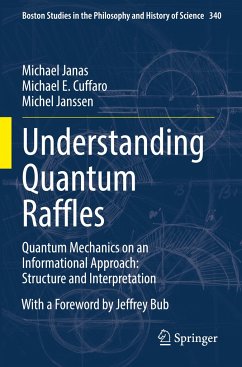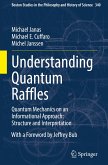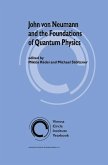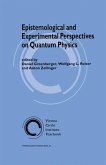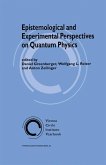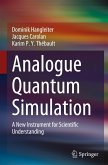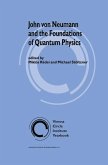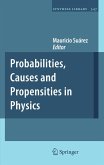This book offers a thorough technical elaboration and philosophical defense of an objectivist informational interpretation of quantum mechanics according to which its novel content is located in its kinematical framework, that is, in how the theory describes systems independently of the specifics of their dynamics.
It will be of interest to researchers and students in the philosophy of physics and in theoretical physics with an interest in the foundations of quantum mechanics. Additionally, parts of the book may be used as the basis for courses introducing non-physics majors to quantum mechanics, or for self-study by those outside of the university with an interest in quantum mechanics.
With a Foreword by Jeffrey Bub.
--
"Understanding Quantum Raffles is a wonderful book for both the specialists and those with curious minds. The elegance and the simplicity with which the 'three Mikes' explain some of the deepest aspects of quantum mechanics on the basis of probabilities and correlations are dazzling and delightful. The same elegance and simplicity also make the book ideal for any engaged reader who ever wondered what is so special about quantum mechanics. In our age of new quantum technologies, this is something anyone should read." (Guido Bacciagaluppi, author of Quantum Theory at the Crossroads)
"This book makes a sustained argument for an informational interpretation of quantum theory, blending an elegant mathematical characterisation of quantum correlations with incisive historical and philosophical analysis. A must-read for those interested in quantum foundations, and also a fertile source of teaching inspiration for quantum theory." (Leah Henderson, Department of Theoretical Philosophy, University of Groningen)
"This is one of the most fascinating and accessible presentations of the informational approach to quantum mechanics. What has so far been mostly restrictedto the theoretical physics community is here masterfully explained for a broader audience even without a physics background. Scholars, students, and laypeople alike will appreciate the clear, vivid, and yet deep discussion of what raffle tickets and correlation elliptopes can tell us about the physics and philosophy of the quantum world." (Markus Müller, Institute for Quantum Optics and Quantum Information, Vienna)
It will be of interest to researchers and students in the philosophy of physics and in theoretical physics with an interest in the foundations of quantum mechanics. Additionally, parts of the book may be used as the basis for courses introducing non-physics majors to quantum mechanics, or for self-study by those outside of the university with an interest in quantum mechanics.
With a Foreword by Jeffrey Bub.
--
"Understanding Quantum Raffles is a wonderful book for both the specialists and those with curious minds. The elegance and the simplicity with which the 'three Mikes' explain some of the deepest aspects of quantum mechanics on the basis of probabilities and correlations are dazzling and delightful. The same elegance and simplicity also make the book ideal for any engaged reader who ever wondered what is so special about quantum mechanics. In our age of new quantum technologies, this is something anyone should read." (Guido Bacciagaluppi, author of Quantum Theory at the Crossroads)
"This book makes a sustained argument for an informational interpretation of quantum theory, blending an elegant mathematical characterisation of quantum correlations with incisive historical and philosophical analysis. A must-read for those interested in quantum foundations, and also a fertile source of teaching inspiration for quantum theory." (Leah Henderson, Department of Theoretical Philosophy, University of Groningen)
"This is one of the most fascinating and accessible presentations of the informational approach to quantum mechanics. What has so far been mostly restrictedto the theoretical physics community is here masterfully explained for a broader audience even without a physics background. Scholars, students, and laypeople alike will appreciate the clear, vivid, and yet deep discussion of what raffle tickets and correlation elliptopes can tell us about the physics and philosophy of the quantum world." (Markus Müller, Institute for Quantum Optics and Quantum Information, Vienna)
"I hope to have shown the many stimulating and fruitful ideas contained in the book. Anyone interested in 'broadly epistemic' approaches to QT and in understanding quantum correlations, the quantum-classical divide, and connected topics should give it a read." (Florian J. Boge, Metascience, September 5, 2022)

